Envisioning with empathy: Reflections on the Transformative Scenario Planning Methodology
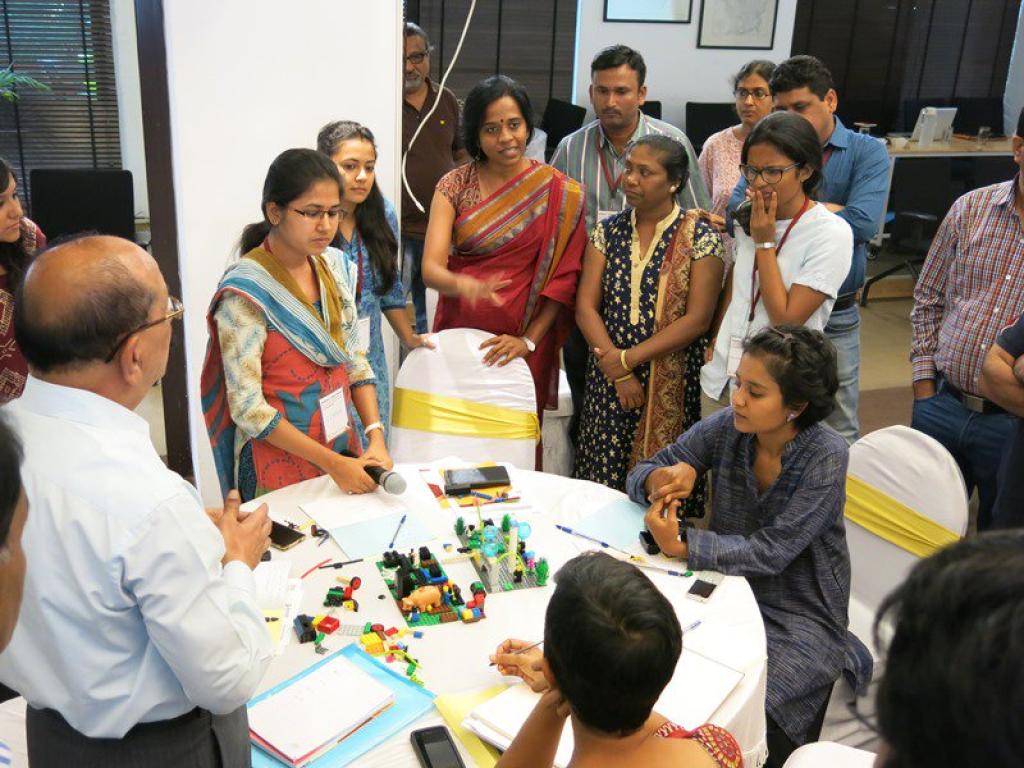
Chandni Singh, from the ASSAR South Asian team, looks back at lessons learned from a training workshop on a methodology called Transformative Scenario Planning (TSP).
By Chandni Singh
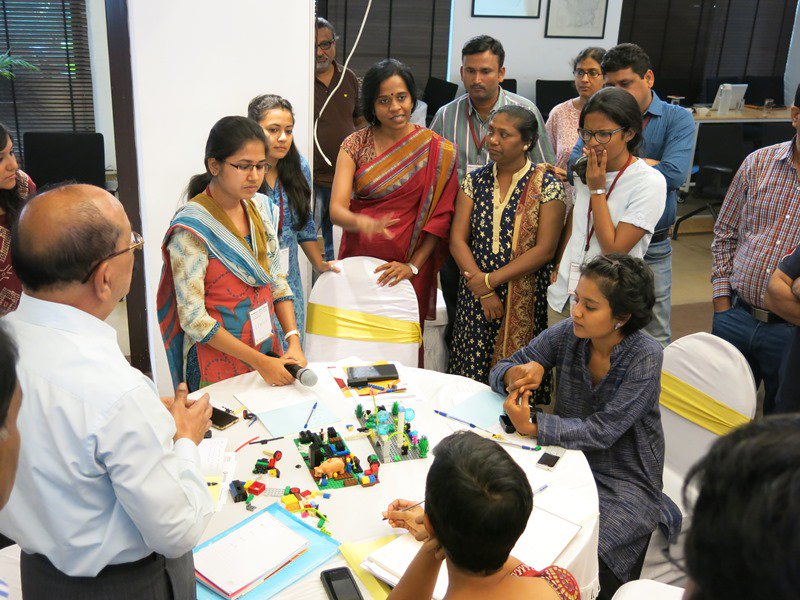
Building Lego models to go with our scenarios. Photo by Tanvi Deshpande
Last month, my team organised and participated in a training workshop on a methodology called Transformative Scenario Planning (TSP). Aimed at envisioning and co-creating futures in situations that are seemingly stuck, cannot be resolved by one/few actors, and are complex and conflict-ridden, the TSP has been used across the globe from post-apartheid South Africa to democratic futures across Latin America. In India, we are exploring whether we can use this methodology to construct transformative scenarios for Bangalore's water future.
About: Transformative scenarios aren’t about predicting the future, they’re about creating it. While most scenario planning methodologies focus on adaptation, transformative scenarios seek to not only understand or adapt to the future but also to shape it. The structured yet creative process helps diverse actors to see the different futures that are possible and discover what they can and must do. Constructing transformative scenarios may lead to working together over time in social labs.
How They Work: Transformative scenarios offer a way for diverse stakeholders together to unblock situations that are polarized or stuck. The facilitated process combines imagination and rigour. It is useful when a diverse set of people face a complex challenge that is vital to them but that they have not been willing or able to work on together, perhaps because they disagree on the very nature of the problem. Transformative scenarios enable them to construct shared understandings, stronger relationships, and clearer intentions, thereby creating the potential for action that will shape a better future. From the Reos Partners Website.
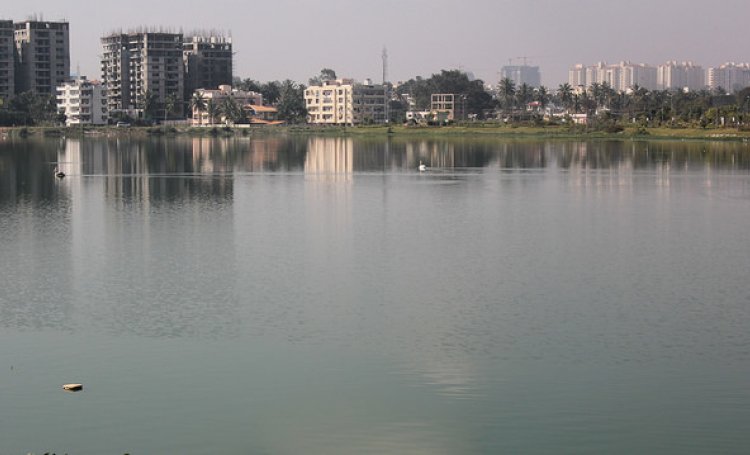
Rachenahalli Lake in Bangalore. Read more at the TNOC blog. Photo by Sumetee P Gajjar
Bangalore's water situation has been in the news for all the wrong reasons. Bangalore's lakes are polluted and frothing. The city has a thriving water mafia which has exploited groundwater within and beyond city boundaries. Real estate developers routinely build upon and along lake beds, disrupting local hydrology. Beyond the water issues, Bangalore is facing serious challenges: its population has doubled over the past decade; services from transportation to electricity supply, are severely stressed; and its under-staffed government bodies face recurring issues of fragmentation and redundancy (many departments with overlapping functions, poor policy convergence). Inequality in the city mirrors Amartya Sen and Jean Dreze's apt comment on India of "islands of California in a sea of sub-Saharan Africa" (An Uncertain Glory: India and its Contradictions, p.9).
In such a situation of complex, almost-overwhelming issues that promise to only become more acute in the future, Bangalore's Water Future is a candidate ripe for the TSP. For me, the workshop, and the journey it took us on, was an invigorating experience.
“...change or action happens when the pain is felt throughout the system.” - Colleen, Reos Partners, Day 1
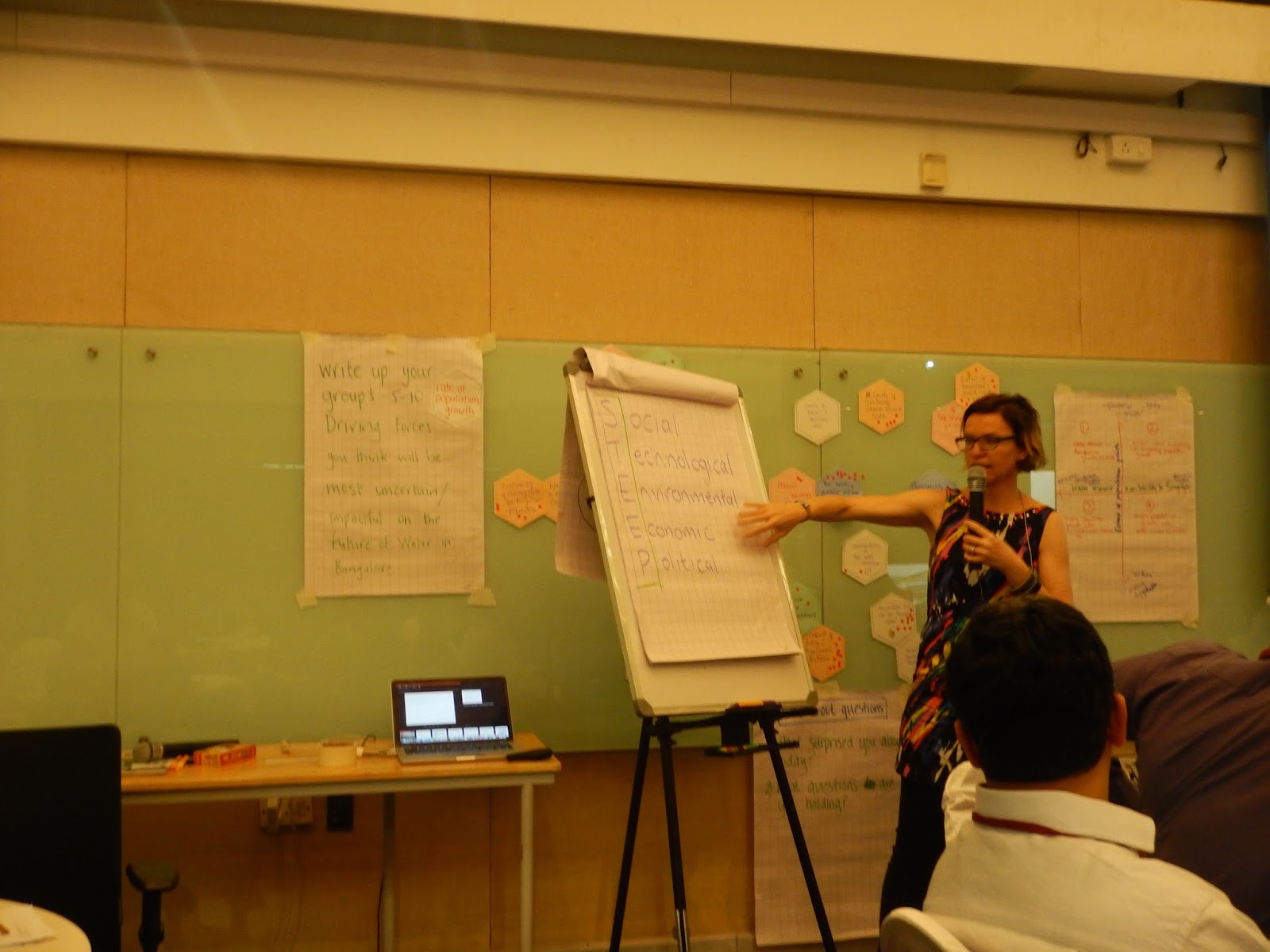
Colleen from Reos Partners taking us through the driving forces exercise. Photo by Tanvi Deshpande
Takeaways from the process:
-
The TSP made us recognise and almost personalise the 'pain in the system' and use it to understand that if solutions are to work, they must be co-created and co-envisioned.
-
But realising that solutions must be co-created isn't enough. Several exercises like paired walks and the Cynics and Believers exercise, helped break down preconceived assumptions and embedded hostilities we might have towards certain stakeholders ("the government doesn't do anything"; "environmental activists would prefer that we stop all development"). Speaking to one another in an open manner, in the safe space the TSP process created, helped build trust and allow for honest conversations.
-
Since the TSP follows a systems thinking approach based on principles of interdependence and holism, it resonated with me (and my work on livelihoods across rural-urban continua).
-
I was happy to that the TSP strongly argues that having conversations and undertaking personal journeys towards transformative change are not 'fluff'. It follows a rigorous process of creating stories of the future: the stories/scenarios are considered 'valid' only if they are plausible, challenging, relevant, and clear.
-
Actively differentiates between adaptation and transformation.
-
The interactive nature of the workshop (we had Lego and hexagonal post-its!) really challenged some participants (government officials, I'm looking at you!) but everyone came aboard pretty soon which was heartening.
-
Challenged linear ways of problem solving and made us get our hands and minds dirty in the inherent messiness of complex problems and recognising that if change is unpredictable, making it happen needs something more than business as usual.
“Looking towards the future along with others is, in itself, a big step.” - Participant, Day 2
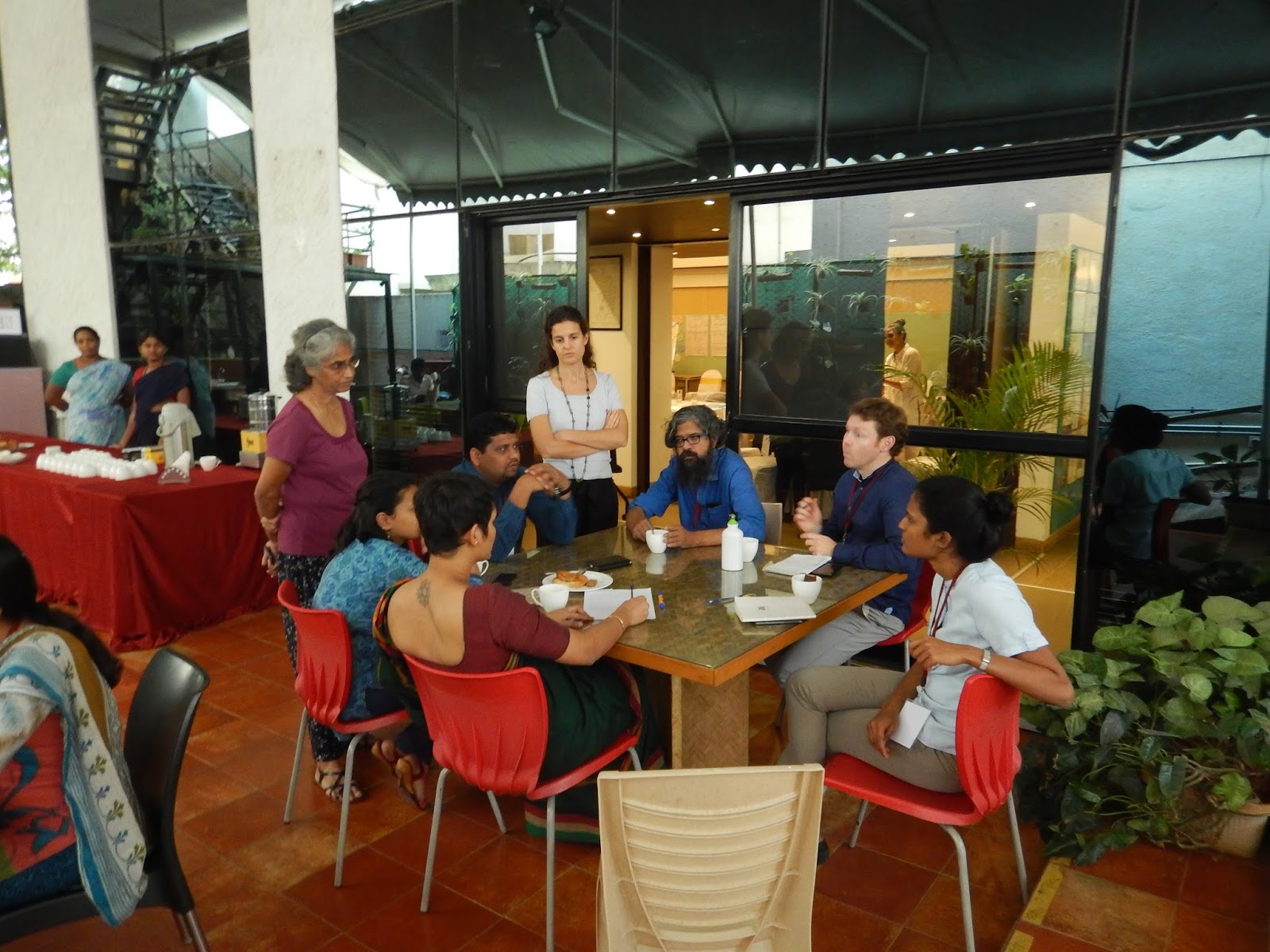

Pictures from the TSP workshop. Photos by Tanvi Deshpande
You can read the original article here